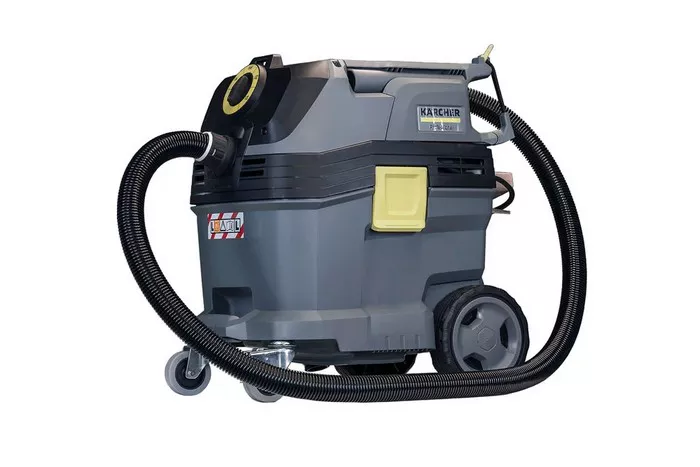Vacuum cleaners are indispensable tools in maintaining a clean and healthy living environment. However, encountering unpleasant odors emanating from your vacuum can be quite disconcerting. These odors not only diminish the efficiency of your cleaning appliance but also can be indicative of underlying issues that need to be addressed promptly. In this comprehensive guide, we delve into the common causes of vacuum odors, effective troubleshooting steps, preventative measures, odor-neutralizing solutions, when to seek professional help, and considerations for replacement.
Common Causes of Vacuum Odors
1. Mold and Mildew
Moisture is the archenemy of any vacuum cleaner. When moisture seeps into the inner mechanisms of the vacuum, especially after cleaning damp surfaces, it creates an ideal breeding ground for mold and mildew. The presence of mold not only causes a foul odor but also poses health risks to individuals, particularly those prone to allergies or respiratory issues.
2. Pet Hair and Dander
Our beloved furry companions bring immeasurable joy into our lives, but they also leave behind a trail of hair and dander that can wreak havoc on vacuum cleanliness. Pet hair tends to accumulate within the vacuum’s filters, canister or bag, and even around the brush roll. Over time, these trapped particles emit an unpleasant odor, exacerbated by occasional accidents where urine may find its way into the vacuum.
3. Excessive Dust
Dust, the perennial nemesis of cleanliness, is a pervasive culprit in causing vacuum odors. As dust and debris accumulate within the vacuum’s components, they create a musty odor that permeates the air during operation. This accumulation is particularly prevalent in households with high foot traffic or inadequate cleaning frequency.
4. Burnt Belt
The vacuum’s belt is akin to its heart—a vital component responsible for driving the brush roll and ensuring efficient cleaning. However, over time, the belt may wear out or become damaged, leading to friction that produces a distinct burning smell. Ignoring this issue not only compromises cleaning performance but also poses a safety hazard.
Troubleshooting Steps
1. Filter Maintenance
Regular maintenance of the vacuum filter is paramount in combating odors caused by trapped particles. Depending on the type of vacuum, filters should be either cleaned or replaced according to the manufacturer’s recommendations. Cleaning reusable filters with water and mild detergent, or replacing disposable ones, ensures optimal filtration efficiency and eliminates odors.
2. Emptying the Canister or Bag
A cardinal rule of vacuum maintenance is to empty the canister or replace the bag regularly. Neglecting this simple task allows debris to accumulate, fostering bacterial growth and emitting unpleasant odors. Aim to empty the canister or replace the bag when it’s two-thirds full to maintain optimal suction power and prevent odor buildup.
3. Cleaning the Brush Roll
The brush roll, responsible for agitating and loosening dirt from carpets and rugs, is susceptible to debris accumulation. Regularly inspect the brush roll for tangled hair, string, or other debris, and remove them using scissors or a cleaning tool provided with your vacuum. This simple yet effective maintenance task prevents foul odors and prolongs the brush roll’s lifespan.
Preventative Measures
1. Proper Hygiene
Maintaining proper hygiene practices extends beyond the surfaces we clean to the tools we use. Schedule regular cleaning sessions for your vacuum, focusing on key components such as filters, canisters or bags, brush rolls, and hoses. This proactive approach not only eliminates existing odors but also prevents their recurrence, ensuring a fresh and clean environment.
2. Avoiding Wet Surfaces
It’s imperative to refrain from using the vacuum on wet surfaces or spills, as moisture can seep into the internal components and promote mold growth. Instead, address wet messes promptly using appropriate cleaning methods and allow the affected area to dry thoroughly before resuming vacuuming activities.
Odor-Neutralizing Solutions
1. Baking Soda and Essential Oils
Harness the power of natural remedies to neutralize vacuum odors effectively. Sprinkling baking soda onto carpets before vacuuming helps absorb odors trapped within the fibers. Additionally, adding a few drops of your favorite essential oil onto a cotton ball and placing it inside the vacuum’s canister or bag infuses the air with a pleasant aroma while masking any lingering odors.
2. Commercial Products
Numerous commercial deodorants and cleaning products are specifically formulated to tackle vacuum odors. Opt for products labeled as safe for use with vacuum cleaners and follow the manufacturer’s instructions for optimal results. These products often contain enzymatic cleaners or odor-neutralizing agents that target and eliminate foul odors at their source.
When to Seek Professional Help
Despite diligent maintenance efforts, persistent odors lingering within the vacuum may indicate underlying issues that require professional attention. If foul smells persist even after thorough cleaning and troubleshooting, it’s advisable to consult a qualified technician or contact the vacuum manufacturer for assistance. Professional cleaning and servicing may be necessary to address internal issues and restore the vacuum’s functionality.
Replacement Considerations
As with any appliance, vacuums have a finite lifespan, and there comes a time when replacement is the most viable solution. If your vacuum continues to emit unpleasant odors despite all efforts to rectify the issue, it may be indicative of irreparable internal damage or wear and tear. Consider investing in a new vacuum cleaner equipped with advanced features designed to combat odors and enhance cleaning performance.
Conclusion
In conclusion, addressing vacuum odors requires a proactive approach encompassing regular maintenance, proper hygiene practices, and strategic odor-neutralizing solutions. By understanding the common causes of vacuum odors and implementing effective troubleshooting measures, you can ensure a clean and fresh living environment for you and your family. Remember, a well-maintained vacuum not only eliminates dirt and debris but also preserves indoor air quality and promotes overall well-being.

